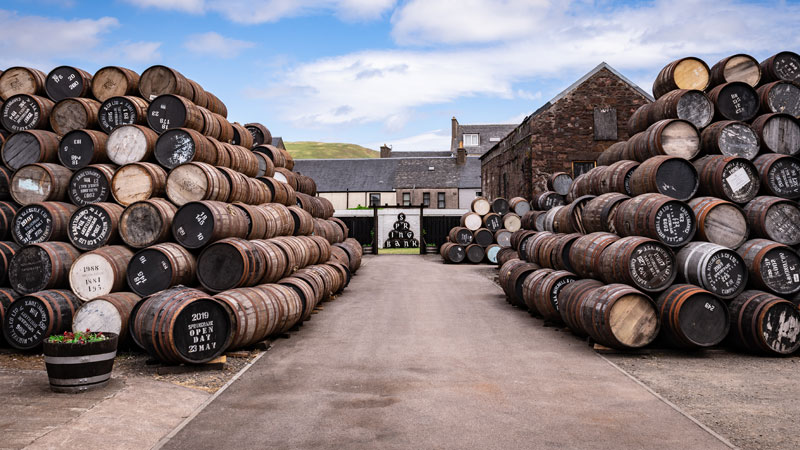
Image Source: Google
Whiskey lovers and investors alike are finding a unique opportunity to combine their passions through whiskey barrel investments. Not only can you enjoy the taste of a fine whiskey, but you can also potentially profit from investing in these aged barrels. If you need more information about whiskey barrel investment, you may visit here https://www.vintageacquisitions.com/
In recent years, whiskey barrel investing has gained popularity as a lucrative alternative asset that offers both financial returns and the satisfaction of owning a piece of the whiskey-making process. Let's explore how whiskey barrel investments are aging gracefully in the market.
The Appeal of Whiskey Barrel Investments
1. Tangible Asset
- Whiskey barrels are physical assets that have intrinsic value due to the quality of the spirit aging inside them.
- Investors can enjoy the tactile experience of owning a tangible object that is also a potential source of revenue.
2. Limited Supply
- Unlike stocks or bonds, whiskey barrels are finite in number, making them a scarce commodity with a potentially increasing value over time.
- The scarcity of aged whiskey barrels adds to their appeal as a collectible asset.
3. High Returns
- Historically, whiskey barrel investments have shown significant returns, outperforming traditional investment options in some cases.
- Investors can benefit from the increasing demand for aged spirits in global markets, leading to higher resale values for aged barrels.
How Whiskey Barrel Investments Work
1. Purchase of Whiskey Barrels
- Investors typically buy whiskey barrels from distilleries or specialized brokers.
- Barrels are usually filled with new-make spirit and aged for a specific period, allowing the whiskey to mature and develop its unique flavors.
2. Maturation Process
- During the aging process, whiskey interacts with the wood of the barrel, absorbing flavors and characteristics that enhance its complexity.
- The length of aging can vary depending on the type of whiskey and desired flavor profile, with some barrels aging for several years before reaching maturity.
3. Resale or Bottling
- Once the whiskey has reached its optimal aging, investors can choose to sell the barrel to collectors, distilleries, or bottlers for a profit.
- Alternatively, investors can bottle the whiskey themselves and enjoy the fruits of their investment by savoring the aged spirit.
Risks and Considerations
1. Storage and Maintenance Costs
- Investors need to consider the costs associated with storing and maintaining whiskey barrels, including warehouse fees and insurance.
- Proper storage conditions are crucial to ensure the quality and value of the aging whiskey.
2. Market Volatility
- Like any investment, the whiskey market can be subject to fluctuations in demand and pricing, affecting the resale value of aged barrels.
- Investors should research market trends and consult with experts before making investment decisions.
3. Regulatory Compliance
- Investing in whiskey barrels may involve navigating regulatory requirements and tax implications, especially when selling or exporting aged spirits.
- It is advisable to seek legal advice to ensure compliance with relevant laws and regulations regarding whiskey investments.
Conclusion
Whiskey barrel investments offer a unique opportunity for enthusiasts to combine their love for whiskey with the potential for financial gain. As the market for aged spirits continues to grow, whiskey barrels have emerged as a valuable asset class that can provide high returns and a sense of pride in owning a piece of the whiskey-making tradition. By understanding the appeal, process, risks, and considerations of whiskey barrel investments, investors can make informed decisions to reap the rewards of this alternative investment opportunity.